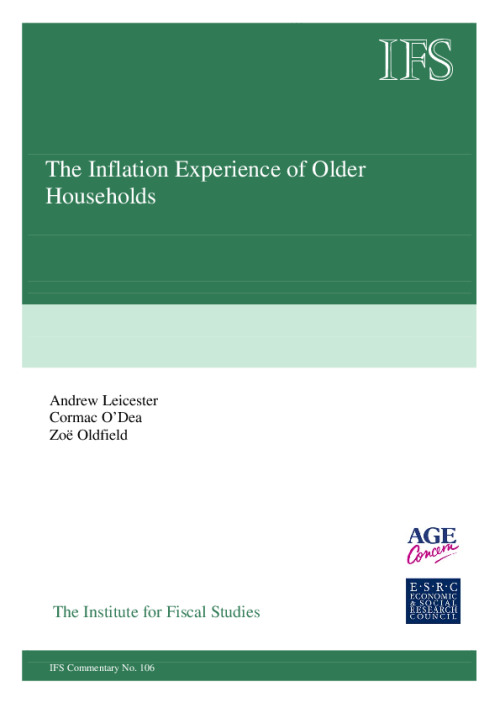Recent increases in inflation have been accompanied by concerns over the extent to which official figures match the 'true' household experience of inflation. Rapid increases in the prices of household fuel, petrol and diesel and, more recently, of food have brought considerable attention to the fact that inflation will be different for different households according to their expenditure patterns. Any measure of inflation, such as the Retail Prices Index (RPI) or Consumer Prices Index (CPI), is necessarily only an average of the experience of different households and may not be especially representative of what is happening for any household in particular.
Using data from the Expenditure and Food Survey, this Commentary looks at the inflation experience (based on the RPI) for different groups of households, examining how the average inflation rate they face has varied over time and making comparisons across the groups, focusing in particular on pensioner households.










